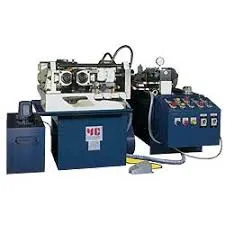
-
 Afrikaans
Afrikaans -
 Albanian
Albanian -
 Amharic
Amharic -
 Arabic
Arabic -
 Armenian
Armenian -
 Azerbaijani
Azerbaijani -
 Basque
Basque -
 Belarusian
Belarusian -
 Bengali
Bengali -
 Bosnian
Bosnian -
 Bulgarian
Bulgarian -
 Catalan
Catalan -
 Cebuano
Cebuano -
 Corsican
Corsican -
 Croatian
Croatian -
 Czech
Czech -
 Danish
Danish -
 Dutch
Dutch -
 English
English -
 Esperanto
Esperanto -
 Estonian
Estonian -
 Finnish
Finnish -
 French
French -
 Frisian
Frisian -
 Galician
Galician -
 Georgian
Georgian -
 German
German -
 Greek
Greek -
 Gujarati
Gujarati -
 Haitian Creole
Haitian Creole -
 hausa
hausa -
 hawaiian
hawaiian -
 Hebrew
Hebrew -
 Hindi
Hindi -
 Miao
Miao -
 Hungarian
Hungarian -
 Icelandic
Icelandic -
 igbo
igbo -
 Indonesian
Indonesian -
 irish
irish -
 Italian
Italian -
 Japanese
Japanese -
 Javanese
Javanese -
 Kannada
Kannada -
 kazakh
kazakh -
 Khmer
Khmer -
 Rwandese
Rwandese -
 Korean
Korean -
 Kurdish
Kurdish -
 Kyrgyz
Kyrgyz -
 Lao
Lao -
 Latin
Latin -
 Latvian
Latvian -
 Lithuanian
Lithuanian -
 Luxembourgish
Luxembourgish -
 Macedonian
Macedonian -
 Malgashi
Malgashi -
 Malay
Malay -
 Malayalam
Malayalam -
 Maltese
Maltese -
 Maori
Maori -
 Marathi
Marathi -
 Mongolian
Mongolian -
 Myanmar
Myanmar -
 Nepali
Nepali -
 Norwegian
Norwegian -
 Norwegian
Norwegian -
 Occitan
Occitan -
 Pashto
Pashto -
 Persian
Persian -
 Polish
Polish -
 Portuguese
Portuguese -
 Punjabi
Punjabi -
 Romanian
Romanian -
 Russian
Russian -
 Samoan
Samoan -
 Scottish Gaelic
Scottish Gaelic -
 Serbian
Serbian -
 Sesotho
Sesotho -
 Shona
Shona -
 Sindhi
Sindhi -
 Sinhala
Sinhala -
 Slovak
Slovak -
 Slovenian
Slovenian -
 Somali
Somali -
 Spanish
Spanish -
 Sundanese
Sundanese -
 Swahili
Swahili -
 Swedish
Swedish -
 Tagalog
Tagalog -
 Tajik
Tajik -
 Tamil
Tamil -
 Tatar
Tatar -
 Telugu
Telugu -
 Thai
Thai -
 Turkish
Turkish -
 Turkmen
Turkmen -
 Ukrainian
Ukrainian -
 Urdu
Urdu -
 Uighur
Uighur -
 Uzbek
Uzbek -
 Vietnamese
Vietnamese -
 Welsh
Welsh -
 Bantu
Bantu -
 Yiddish
Yiddish -
 Yoruba
Yoruba -
 Zulu
Zulu
Custom Thread Rolling Machines for Precision Flat Thread Production and Manufacturing Solutions
Custom Flat Thread Rolling Machine Revolutionizing Fastener Production
In today's fast-paced manufacturing world, efficiency and precision are paramount. Industries that rely on fasteners—such as automotive, aerospace, and construction—are constantly in search of innovative technologies that can enhance productivity while maintaining unrivaled quality. One such technological advancement is the custom flat thread rolling machine, a specialized tool designed to streamline the production of threaded fasteners.
Understanding Thread Rolling
Before delving into the specifics of flat thread rolling machines, it's essential to understand the process of thread rolling itself. Thread rolling is a cold-forming process that uses dies to create threads on a cylindrical workpiece. This technique offers numerous advantages over traditional cutting methods, including improved strength due to the absence of material removal and a superior surface finish.
The rolling process works by compressing the material, resulting in threads that are not only stronger but also more uniform. This makes thread rolling an ideal choice for producing high-strength fasteners used in critical applications.
The Role of Customization
Every industry and application has its unique requirements, which is where custom flat thread rolling machines come into play. Instead of relying on generic machines that may not meet specific production needs, manufacturers can opt for custom solutions tailored to their unique specifications. Here are some key considerations
1. Size and Configuration Custom flat thread rolling machines can be designed to accommodate different sizes of fasteners. Whether producing large bolts for heavy machinery or small screws for electronic devices, these machines can be configured to handle various dimensions.
2. Material Compatibility Different materials require different handling during the rolling process. Custom machines can be engineered to work with specific metals, polymers, or alloys, ensuring optimal results for each material type.
3. Production Capacity In a competitive manufacturing landscape, the ability to scale production can be a deciding factor. Custom machines can be designed with varying throughput capabilities, allowing manufacturers to meet high demand without sacrificing quality.
custom flat thread rolling machine

4. Integration with Other Processes A custom flat thread rolling machine can be integrated into existing production lines or automated systems. This streamlines the manufacturing process, reduces labor costs, and enhances overall efficiency.
Advanced Technologies in Custom Machines
Modern custom flat thread rolling machines often incorporate advanced technologies to further boost their capabilities. For example, some machines come equipped with computer numerical control (CNC) systems that enable precise control over the rolling process. This level of automation not only improves accuracy but also allows for quick changes in production runs without the need for extensive retooling.
Additionally, advanced monitoring systems can provide real-time data on machine performance, ensuring that any potential issues are detected early. This predictive maintenance capability can reduce downtime and extend the lifespan of the equipment.
Benefits of Custom Flat Thread Rolling Machines
The adoption of a custom flat thread rolling machine offers several benefits
- Enhanced Quality Custom machines ensure precise manufacturing processes, resulting in fasteners that meet stringent quality standards. - Cost Efficiency By reducing waste and minimizing material handling, custom machines can significantly lower production costs over time. - Increased Flexibility Manufacturing facilities can quickly adapt to market changes or new product lines, making custom solutions an excellent investment for future growth.
Conclusion
The custom flat thread rolling machine represents a significant advancement in the production of threaded fasteners. As industries continue to evolve and demand higher standards for quality and efficiency, customized machinery that caters to specific production needs will remain crucial. By investing in these advanced solutions, manufacturers can position themselves at the forefront of their industries, ready to meet the evolving demands of the marketplace. Ultimately, the future of fastener production lies in the hands of innovative technologies that prioritize customization, efficiency, and quality—the hallmark of custom flat thread rolling machines.
